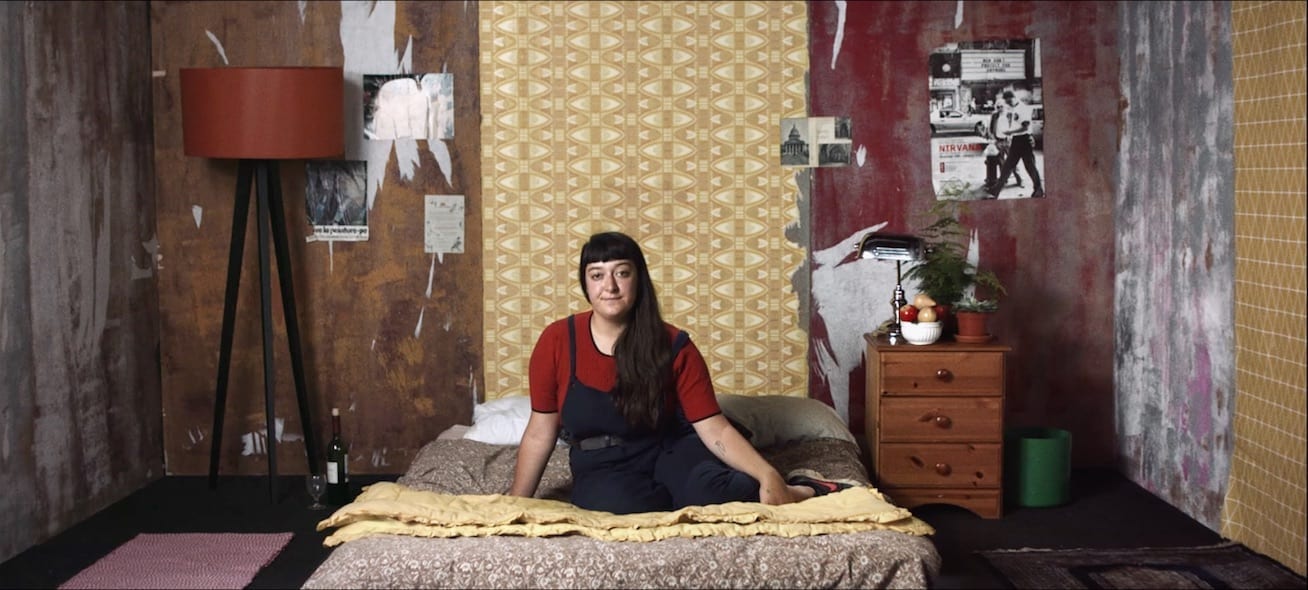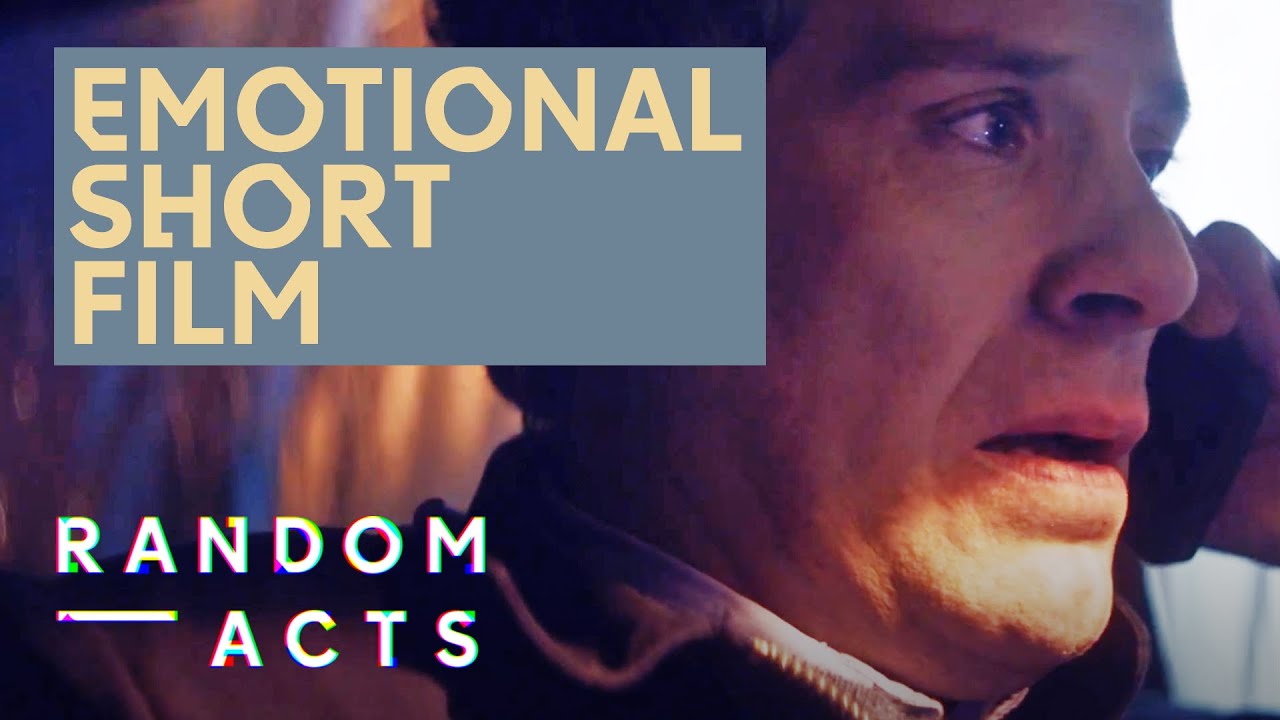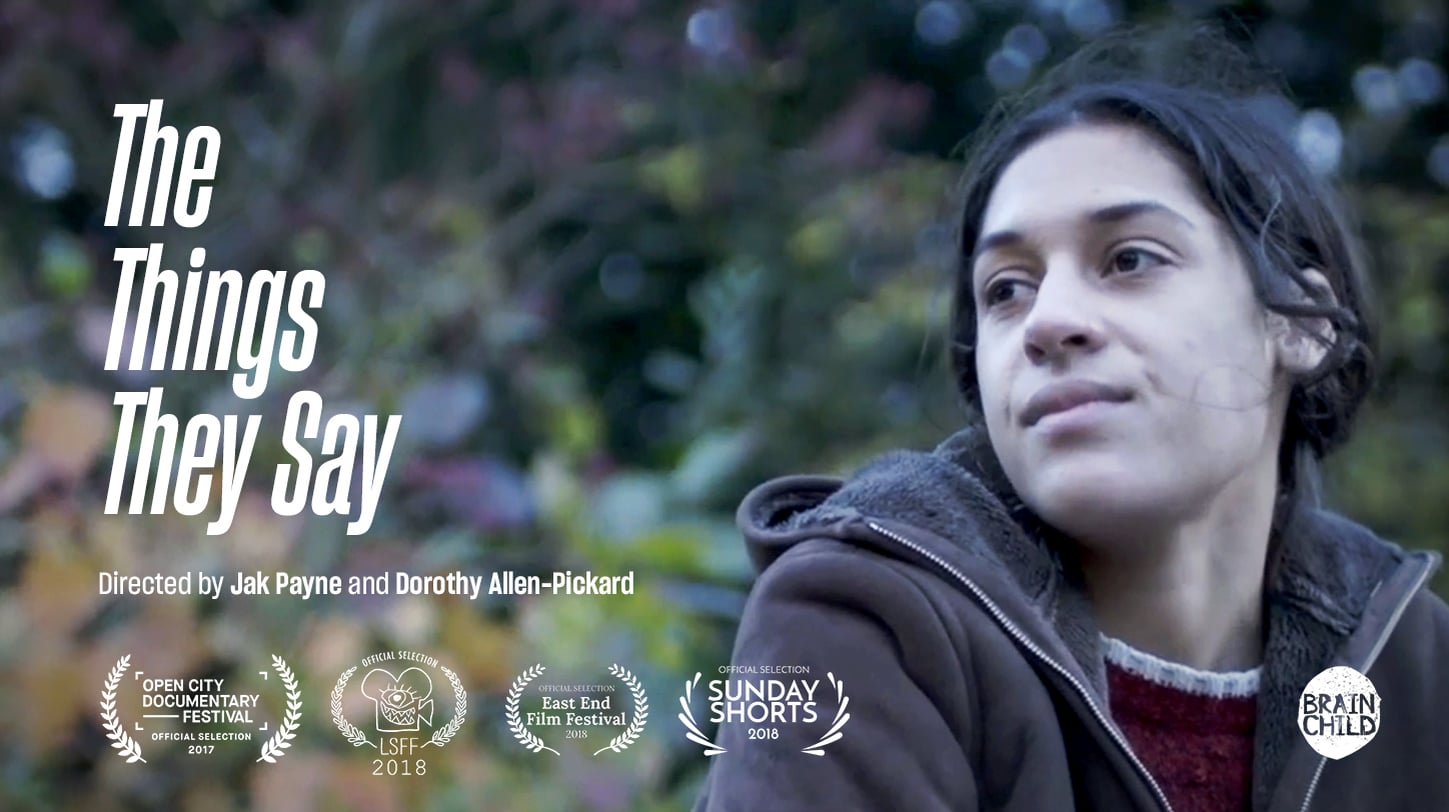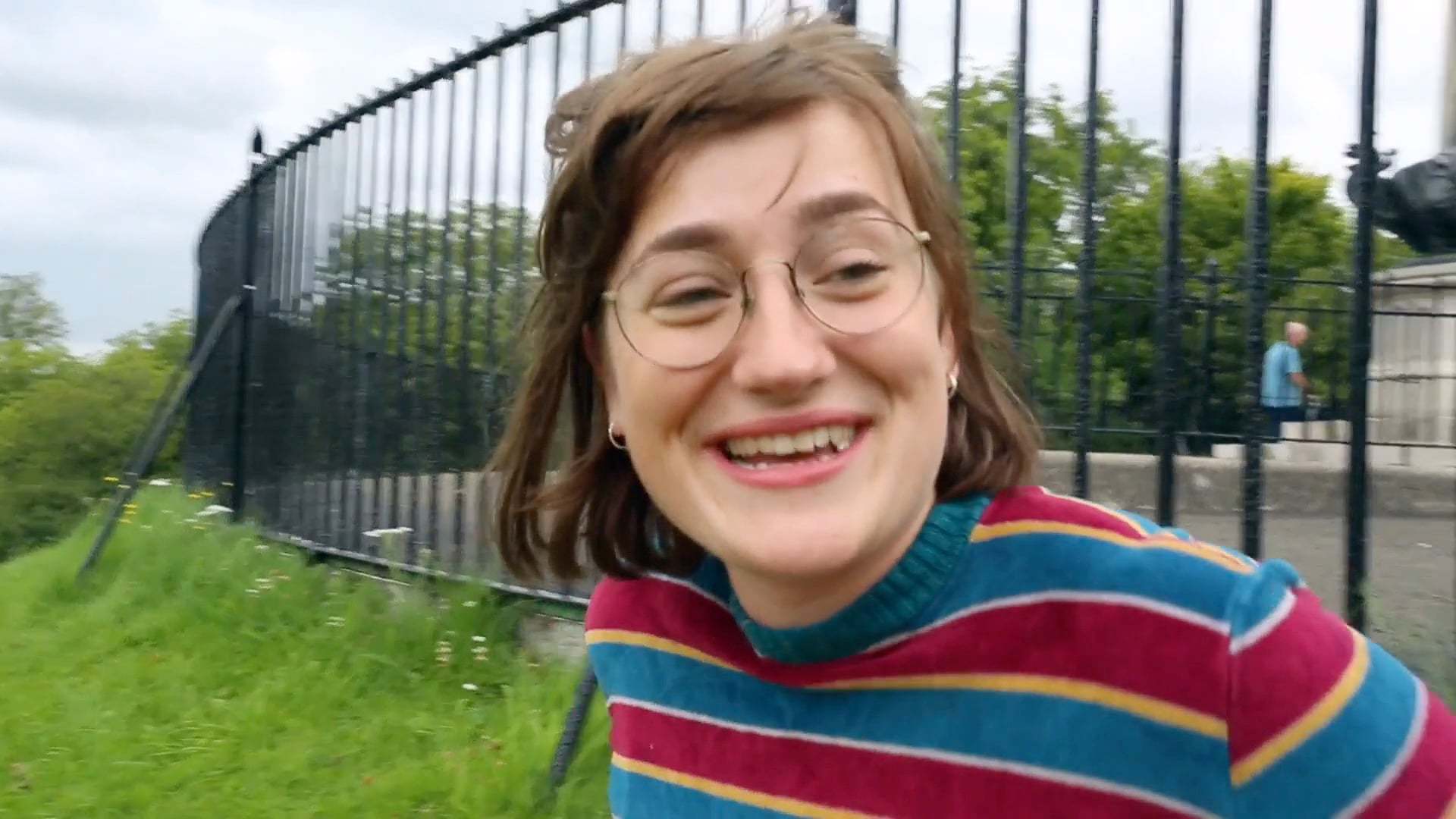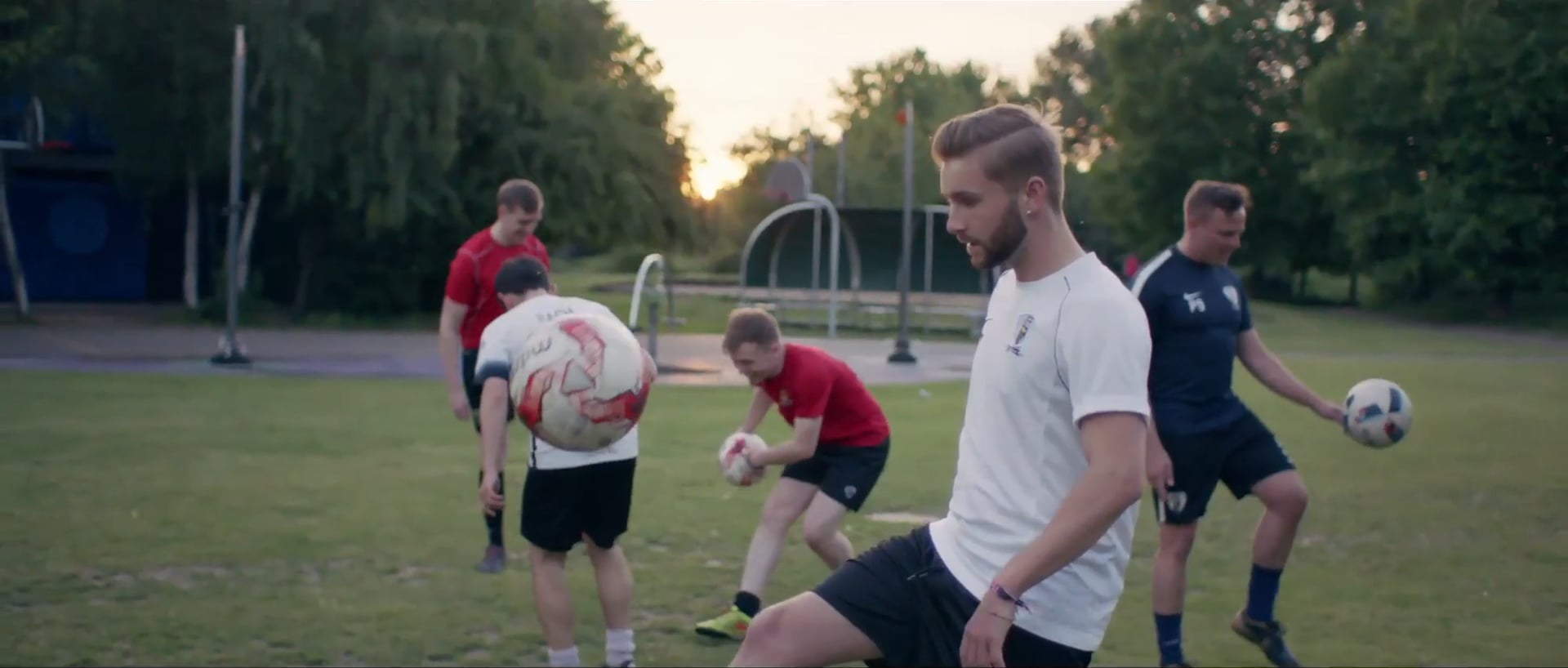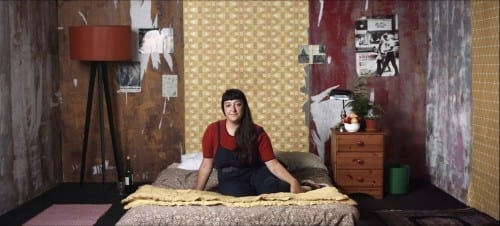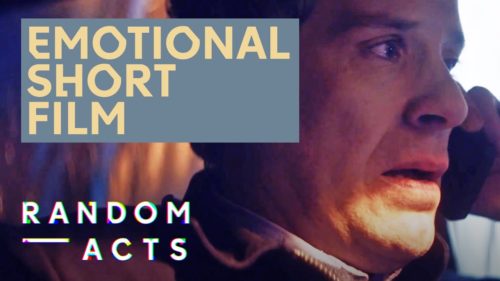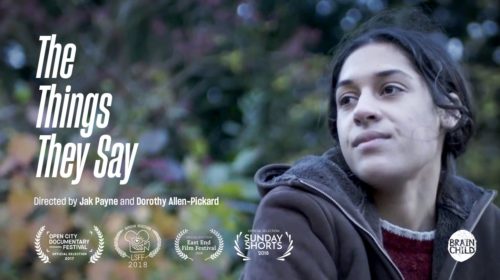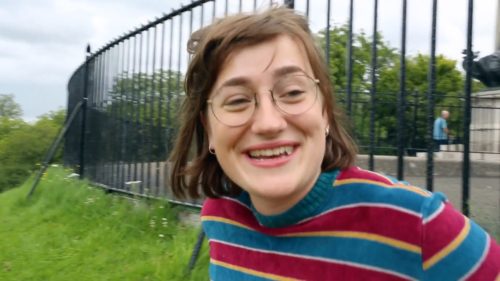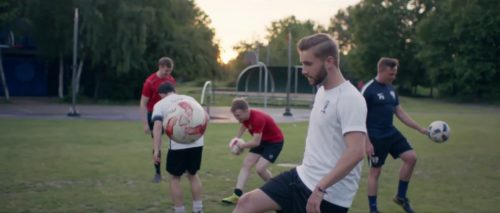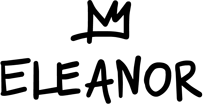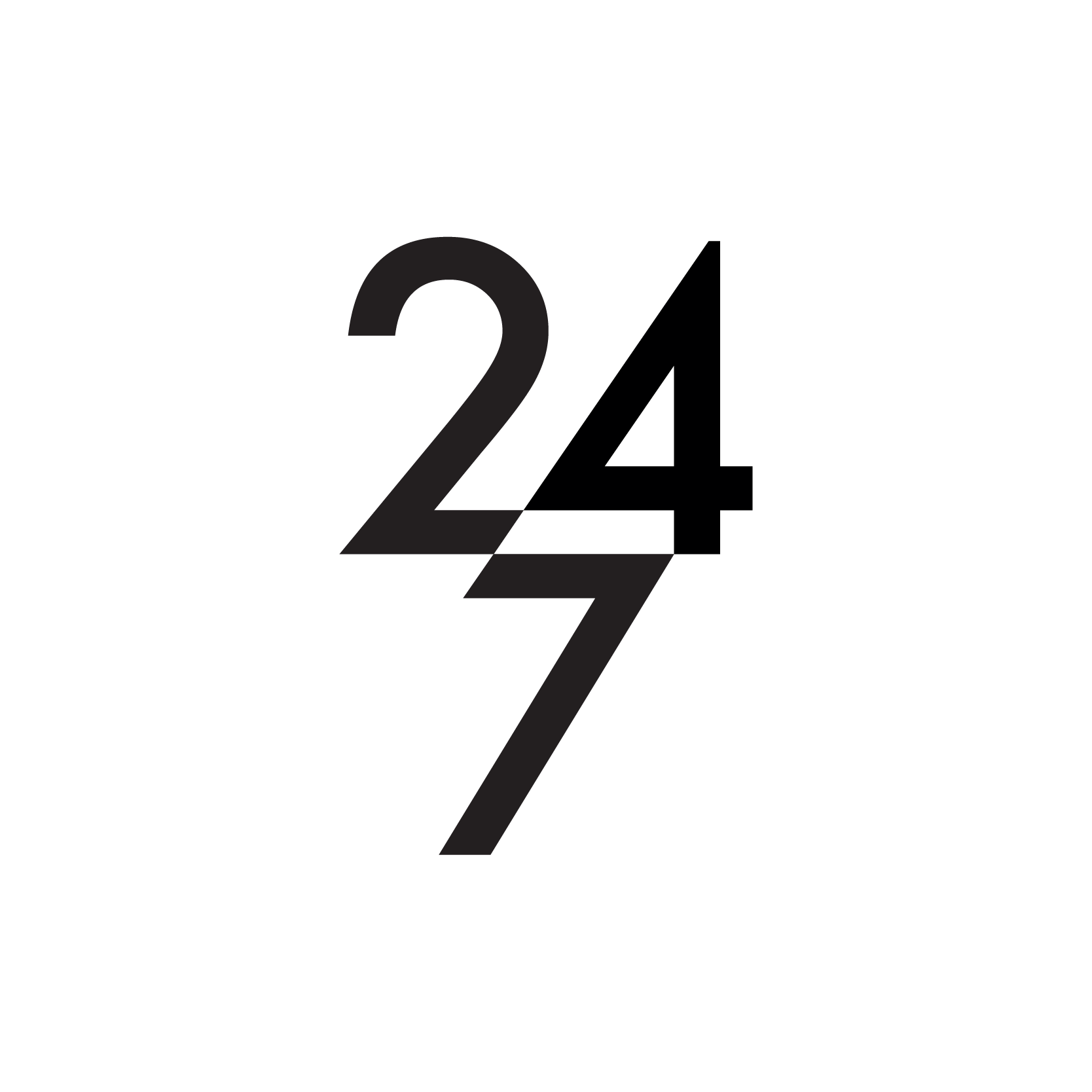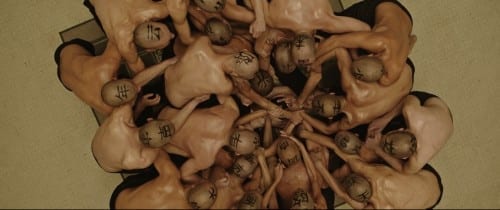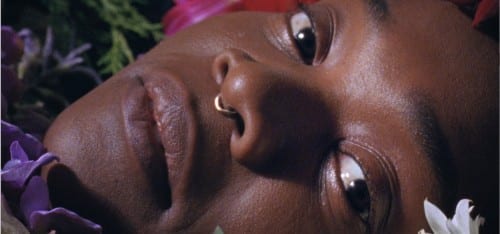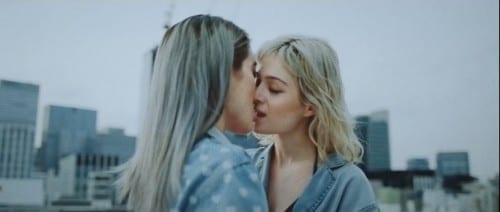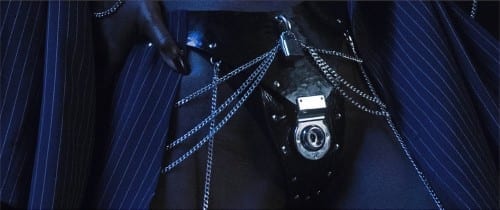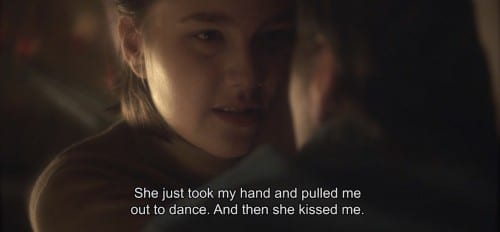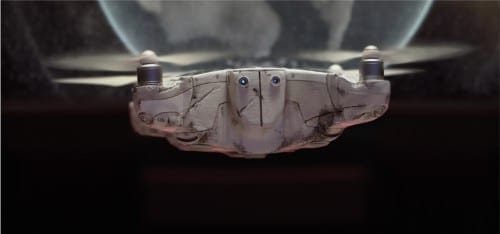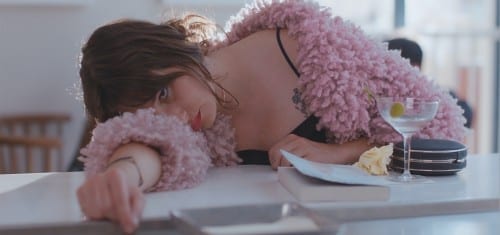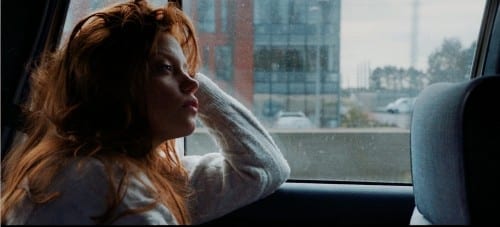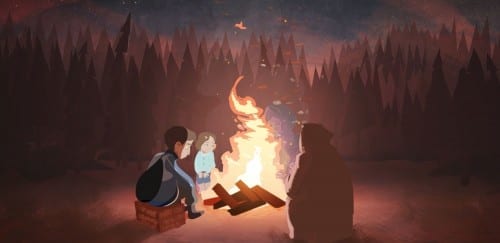Please tell us about your creative process – how do you go about finding your subjects and evolve the idea into films?
Quite often I’ve found myself drawn to making films about my friends and family, both in documentaries and fictional works. I want to tell stories about subjects I know and understand well, so it makes sense to start with the people I know. A lot of their experiences are really powerful when seen on screen – whether it’s experiencing bipolar, converting to religion, or living with a physical disability – it’s issues that are relatable for a wider audience, yet they’re often absent from our screens. And there’s a trust and an openness that has come from years of friendship, which makes for a more complex and interesting film.
When it comes to evolving an idea into film form, there isn’t really a particular model or process that I follow. Sometimes I do lots of preparation before a shoot and other times I just turn up, have a quick chat with the subject and get straight to filming. When tackling hard hitting subjects like mental health or disability I think it demands an unflinching eye. I’m not really interested in watching contrived emotional outbursts or euphemistic sterilised representations of real life, as there’s enough of that in mainstream cinema. We might as well get to the point with what we’re trying to say!
Some of your films are unscripted – are they conversations that evolve in the edit?
I think because I started out self-shooting and editing my work I put a lot of trust in the editing process! It’s a time when you can work everything out and put plasters over the bits that don’t quite merge together. Having confidence in the later stages of filmmaking also takes the pressure off during the shoot, which allows you to have more fun experimenting with ideas and visuals. That said, there’s a lot of value in properly preparing for a shoot and covering your back in the early stages of the process!
My most recent film The Mess was a combination of scripted and spontaneous dialogue. Ellice Stevens and I spoke about finding a narrative form that could accommodate a multifaceted conversation about all the different aspects of her experience of bipolar, which is how we came up with the idea of having three different strands. We felt it was really important that on the day of the shoot there was space for her to speak in an open, intuitive way about her experience, so that it wasn’t only the composed, rehearsed narrative of bipolar that she’d discuss. Unsurprisingly, the unscripted parts were the moments that were the most emotionally raw.
I’m increasingly interested in finding ways to create space for unscripted dialogue in fiction. Last year I made a docu-fiction called The Things They Say with Jak Payne, starring my friend Hailey Talbot Tittle, who plays the only fictional character in the film. All the other characters play themselves and the film’s dialogue is completely unscripted. We set up a series of encounters to see what would happen when you merge fictional and real characters, and the performance that came from this and the stories they told blew us away!
A photographer often knows when they’ve got the shot. Is there something specific you’re looking for when you’re interviewing and filming, like moments of humour and hope?
Before a shoot is finished I definitely need to have caught at least one moment of hope on camera – and not contrived hope, but something more genuine- even if it’s swamped with other depressing material! I’ve noticed that people tend to naturally find silver linings when they talk about some of the darkest subjects, as I think it’s hardwired into how we tell stories.
The only time I’ve made a film with a narrative that’s completely devoid of hope is my Random Acts short called The Wall. The whole point of making this film was to tackle the subject of suicide head on, without forcing a happy ending and without simplifying the problem. I knew for a long time that I wanted to make a film about the subject, and it’s actually what got me into making fiction, as I didn’t feel it was a subject I could tackle through documentary. I needed to be able to detach myself from the weight of the narrative, in order to go through the process of making the film, and fiction was very useful for that.
I also think there’s more space in fiction for sad endings, as it can subvert the genre and audience expectations in an interesting way. At the end of the film people can always say to themselves ‘that wouldn’t happen in real life’ if they’d rather distance themselves from the grim reality! Whereas documentaries that have no hope really leave you with nothing!
In The Mess you have introduced filmic effects to add a more sophisticated layer to the visual communication whereas your earlier films are rather raw, straight-forward documentaries. What was behind this decision?
What particularly interested me in The Mess was the challenge of finding a visual language that explores the specificities of bipolar as something that’s distinct from depression and other mental illnesses. There’s great potential to use the film medium to explore mental illness, because you can create visual metaphors and layer dialogue over music, which helps to create a sense of someone’s mental state.
When I started out, I made films because I had something to say (or had something I wanted other people to say) and I kept the visuals simple in order to focus on the storytelling. I remember when Old Pal came out, a short documentary that I made with one of my oldest friends the day before she had an amputation, I sent it to online platforms and they essentially said that because the production value was so low (it was shot in windy grey Glasgow on a 5D) they couldn’t post it. In the end it went up on Huck Magazine and got a great response from festivals, but I’ve always felt that not enough people have seen this documentary, and it’s not everyday you meet someone as incredible and hilarious as Caitlin McMullan. So after that that I decided to start making shiny films with elaborate, special effects to get industry snobs to watch them! (And I discovered how much potential there was in telling stories through visuals.)
What triggered your interest in making films and where did you learn your craft?
Watching other films, particularly films made by women (and dare I say, the French New Wave!) was really significant in awakening my interest in the medium when I was a teenager. I remember seeing the some of Agnes Varda’s documentaries and thinking I should have a go at that. She and Chris Marker do a great job of deconstructing the film form, which in itself teaches you a lot about the craft.
Then it was a conversation I had with Kim Longinotto that made me want to rise to the challenge of making fiction, as she said she would have loved to have made fiction, but never dared to because there was so much money involved and it seemed like a very male domain. This really resonated, and I guess at that point I thought fuck it, even if I’m totally useless as making fiction I should have a go, because until that point I had also unconsciously assumed it wasn’t my ‘domain’. I’m getting more and more into making fiction, and finding ways of injecting documentary elements into it to make it my own.
I taught myself how to shoot and edit while at Warwick University, making spoken word videos and very on-the-nose political documentaries! Then thanks to the Channel 4 Random Act’s programme I began to experiment with fiction, and returned back to making documentaries with The Mess, which was commissioned as part of last year’s Homespun competition. There are no two ways about it, that competition changed everything for me. If I could apply again this year I would and I’d go in ever harder with the special effects, as I’m never going to receive that level of support in post-production again for free!
Please sum up your childhood…
Straight to the point, the question that every interviewer wants to ask! I can say that The Wall is semi-autobiographical, but other than that part of my childhood I had a pretty nice time growing up in South-East London (and I shouldn’t deny my early years in Lewes, a place no one admits coming from. Be sceptical of anyone who says they’re from Brighton, as they probably mean a small provincial town nearby.) I’m fortunate to have been surrounded by a lot of incredible people, both friends and family, most of whom I still see and am collaborating with in some way or another!
What are you currently working on?
I’m currently grading a film for Adidas which I’ve produced through Knucklehead.
Following your shortlisted win at Homespun as well as Vimeo Staff Pick with The Mess there will undoubtedly be interest in signing you to a production company. What are your plans?
I’ve spoken with lots of amazing production companies who are all very different and have interesting things to offer, and I’m basically just going to sit on it for a while before making a decision. I’m very fortunate to have several industry-guru-mentors, including Jason Stone and the guys at Stitch, who have been incredibly helpful in giving me an idiot’s guide to the commercial film industry, as I didn’t even realise this whole thing existed before The Mess screened at David Reviews’ Craftworks, and then suddenly there you all were. I’m also finishing off an MA in Directing Fiction at Goldsmiths, so am buying time and finishing my degree before I actually having to make a decision.
Is there anything else you’d like to share?
That I’m writing this at the crack of dawn while recovering from jetlag, so it may read as slightly unhinged, but hopefully you can follow.
LINKS
